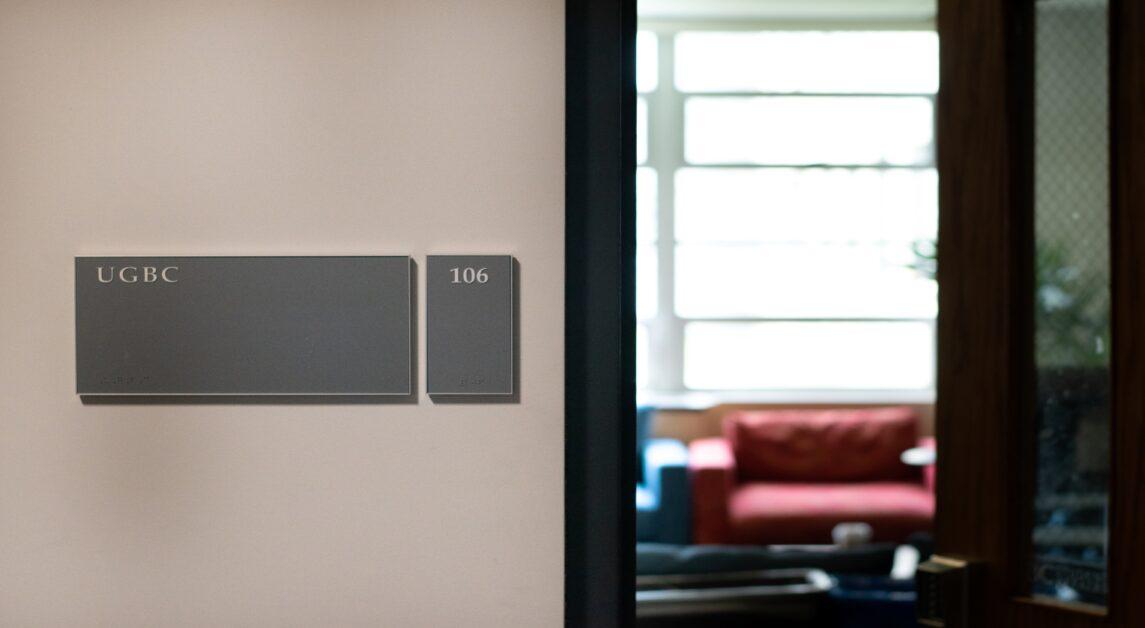Lubens Benjamin, president-elect and CSOM ’23, and Andy Bonilla, the new director of finance and CSOM ’23, presented the proposed 2022–23 UGBC budget, which the SA later confirmed, at Wednesday’s meeting. The budget will be officially confirmed after BC’s Division of Student Affairs approves it.
“All money that’s being moved around in order to put in new places has come from two main sources: the cut to Student Initiatives money, [and] also the 2.7 percent [increase which] accounted for inflation,” Benjamin said.
During the 2021–22 school year, the University granted the Executive Council of UGBC a budget of $41,500, while the budget for next year is $53,250, a 28.31 percent increase.
“The increase in the Executive Council [budget] is to account for mainly the retreat that UGBC will have next year for its members, and moving it off campus as well,” Benjamin said.
The Executive Council’s budget is comprised of a $23,500 stipend to the OSI graduate assistant, a $4,000 stipend to the president, a $3,500 stipend to the vice president, a $10,000 stipend to UGBC leadership, and $5,000 to the UGBC retreat.
“When it comes to the executive leadership stipend, the allocations of that 10k will be $900 for the chief of staff, $700 to the finance director, $1,000 to the [diversity and inclusion] director, [student initiatives] director, and environmental sustainability, and the council director,” Benjamin said. “All the council chairs will get $800, and then all the committee chairs will get $500.”
Dennis Wieboldt, MCAS ’22, questioned the amount of money allocated toward stipends for UGBC members, also arguing the money is not fairly divided among the various positions.
When later discussing the Council for Students with Disabilities’ (CSD) budget, Sarah Farnan, the new CSD chair and MCAS ’23, said this year’s allocated speaker fund for CSD of $8,000 was not enough.
“The amendment that I’m proposing … would just be that this Friday, or whenever you guys meet with Student Affairs, there is an amendment made to request a larger amount of money to be put forth to CSD for events like speaker events or for any type of community-building events,” she said.
Benjamin and Bonilla’s proposed budget outlined a 38 percent increase in the CSD’ budget—increasing from $25,000 to $34,500.
“CSD got an increase of nearly 10k and 38 percent more than they had last year for new legacy events CSD said that they will be putting on next year,” Benjamin said.
Wieboldt proposed allocating additional money to CSD’s budget than proposed. Several SA representatives voiced their opposition to Wieboldt’s proposal, questioning where the money would come from.
After about an hour of debate, the SA voted to ask Student Affairs to increase CSD’s budget by an additional $3,500. This motion passed with 20 votes in favor of the increased budget, one against, and one abstention.
The Communications Division will undergo a 9.81 percent decrease in its budget, from $10,700 to $9,650.
“Communications lost $1,000 this upcoming year, and the logic behind that is essentially the fact that … before photoshop was something we used to purchase, and it is actually a bit more expensive,” Bonilla said.
“Communications got a small cut just because, going through the line items this year, we then conserved what communications actually spends their money on” Benjamin said.
The Division of Student Initiatives’ budget will decrease by 15.25 percent, from $70,439 to $59,700.
“When we get to SI, you’ll see that they have line items that we know will happen next year as well as 10k discretionary [funds] that will be used towards activities that will meet students needs,” Benjamin said.
The Student Assembly’s budget will increase by 31.11 percent, from $4,500 to $5,900.
“This is to account for continuing the Montserrat pilot for the beginning of next semester,” Benjamin said. “By that point, we’ll have enough data … so that eventually the Monsterrat [funds] shouldn’t be coming out of UGBC, it should be allocated [by] Montserrat.”
The budget for the Division of Environmental Sustainability will remain the same—$14,850.
“The Green Careers Night was a success this year—they’re hoping to expand that,” Benjamin said. “And also educational programming, tabling, and also looking to do this one thing where they have sustainable cups on game days.”
Benjamin and Bonilla proposed a decrease in the AHANA+ Leadership Council’s (ALC) budget from $132,500 to $132,000, a 0.38 percent decline.
“We can look to expand events like Showdown without requesting more money from ALC by bringing in sponsors in next year like athletics or outside as well to continue to up the value of showdown without having to cost more than the UGBC budget,” Benjamin said.
The GLBTQ+ Leadership Council’s (GLC) budget will decrease 1.92 percent, from $52,100 to $51,100.
“There’s a lot actually planned with this GLC discretionary fund already,” Benjamin said. “And this is all keeping in mind the tons of programming that GLC does throughout the year, they do a lot of small, niche programming.”
Prior to approving UGBC’s budget for next year, the SA also confirmed Taylor Morales as the director of the division of diversity, equity, and inclusion for the upcoming academic year.
“My goal [is] to standardize, unify, and collaborate across the council’s forum,” Morales, MCAS ’23, said. “And not only across councils, but across the [UGBC] divisions.”



















